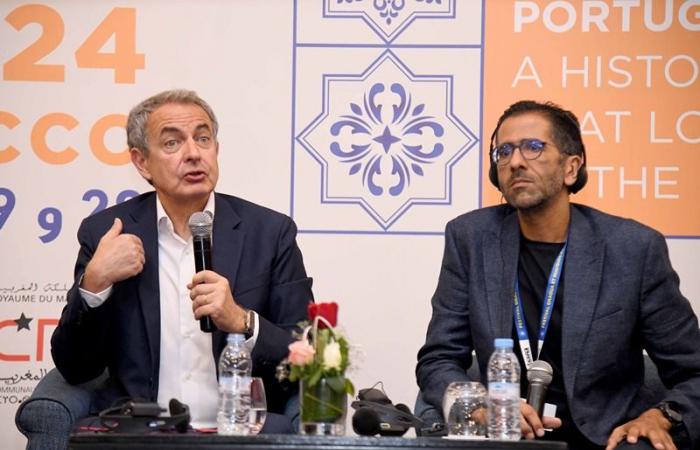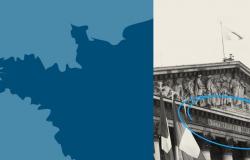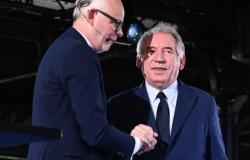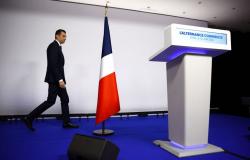The 11th edition of the Human Rights Forum of the Gnaoua and World Music Festival was held this Friday, June 28, at the Atlas Hotel in Essaouira on the theme “Morocco, Spain, Portugal: A history with a future.”
Organized in partnership with the Council of the Moroccan Community Abroad (CCME), the Forum invites, like every year, personalities from different backgrounds. This edition was marked by the presence of the former president of the Spanish government, José Luis Rodriguez Zapatero, who came to answer numerous questions related to the tripartite organization of the 2030 World Cup, between Morocco, Spain and the Portugal.
Indeed, in 2030, that is to say in less than six years, Morocco, Spain and Portugal will organize the Football World Cup. This unprecedented joint candidacy testifies to the exceptional relations which have linked the three countries for more than a thousand years, with variable but practically uninterrupted human, economic and cultural flows. This shared history has also not been short of frictions, or even conflicts of all kinds.
The theme of this 11th edition was chosen in connection with this organization, which places the Kingdom in front of many new challenges since it is an adventure involving three countries, spread over two continents, with the same passion for football, but cultures and political and cultural traditions, both close and distant.
It is, moreover, an opening to economic opportunities and constitutes an extraordinary accelerator of cooperation between the three organizing countries.
Defend the principles of racial and gender equality
In this sense, José Luis Rodriguez said he was impressed by the progress made by Morocco in terms of human rights and women’s rights, and its ability to overcome social problems.
“The Mediterranean philosophy says that you cannot understand Spanish culture without Morocco and vice versa. We also love Portugal, a great country despite its small population. We feel close to Portugal. We must make the next World Cup an event of friendship between our countries.”he said, expressing his pride in being part of this partnership.
“We are proud of this partnership between our three countries. António Costa, the Portuguese Prime Minister, is like a brother to us. We are human above all. We must work together and respect all cultures and histories. I am very happy to be present at this festival. We must courageously defend the principles of freedom and racial and gender equality. We must reject selfishness and self-centeredness, which destroy societies”he continued.
According to the former Spanish minister, it is above all about “promote democracy and gender equality. These values build our societies by respecting others.”
“The next World Cup must be an event of peace and love. If we achieve this, we will be among the winners. We have technology and artificial intelligence to help us, but we must remain modest and open to cooperation. Past generations fought against slavery; now we must work together for a better future,” he said, highlighting Morocco’s efforts in terms of human rights.
“Many writers have advocated for peace. War and arrogance only lead to destruction. Morocco has made commendable efforts by thinking about crises in places like Gaza and Ukraine, but also in Africa where poverty and violence are often ignored by the international community. We must change our behavior and work for human rights. Human history is marked by the struggle for fundamental rights such as freedom of thought and expression. There are an infinite number of rights to defend, from health to political participation, including equality and the right to protest.”he believes.
Opportunities for dialogue and cooperation
The strengthening of economic and political relations between Morocco, Spain and Portugal and the joint organization of this 2030 World Cup constitute real progress and certain opportunities for dialogue and cooperation. But the challenges facing the three countries have also changed in nature, requiring more creativity, understanding and mutual respect.
In this regard, Driss El Yazami, President of the Council of the Moroccan Community Abroad, declared, at the microphone of Hespress FR, that Morocco has a very deep history with Spain and Portugal, “of cooperation with very beautiful moments, but at the same time moments of crisis. And even today, there are moments of cooperation, but also sometimes mini tensions that characterize our relations. Hence the importance of supporting the enormous effort made by the sports federations, by the governments of the two countries, at the level of civil society.
El Yazami also highlighted the increasing number of Spanish tourists in Moroccan territory and vice versa: “Tourist flows seem to be developing in a regular and fairly balanced manner, since there are practically nearly a million Spanish tourists on one side and Moroccan tourists on the other who visit each country and the phenomenon seems to be developing without a hitch. . There are clearly opportunities to be better exploited in this area between Morocco and Portugal.”
An opening to dialogue and peace
Asked by Hespress FR, Neila Tazi, co-founder of the Gnaoua festival, sees this joint candidacy between Spain, Portugal and Morocco as an opening to peace and dialogue like the festival which is currently taking place in the windy city.
“I hope it will be the world championship of football for peace. When peace is imposed, when dialogue between peoples and cultures advances, when we respect, when we know each other, we appreciate other cultures, other languages, other stories. The world is bigger, wider, and the citizens of the world can be happier. This is what this festival does. It is a song to happiness, to dialogue and love, to art and culture, that is to say intelligence. ».
“We are experiencing a great moment in the relationship between Spain and Morocco. It is true that there is a great commercial, economic relationship, but there is something more important, the respect and appreciation which discovers every day that it is not possible to hear the story of Spain without Morocco and without the Arab world, and that it is not possible to hear the history of Morocco without Spain. We have left reciprocal marks that make us live with a breadth of views, and therefore I believe that we must congratulate the two governments for there being such a positive relationship today, and for it to be a legacy that persists and who persists »she stressed.






